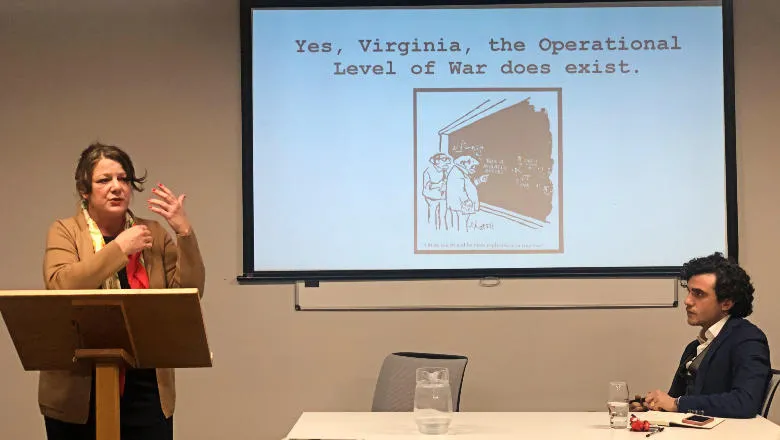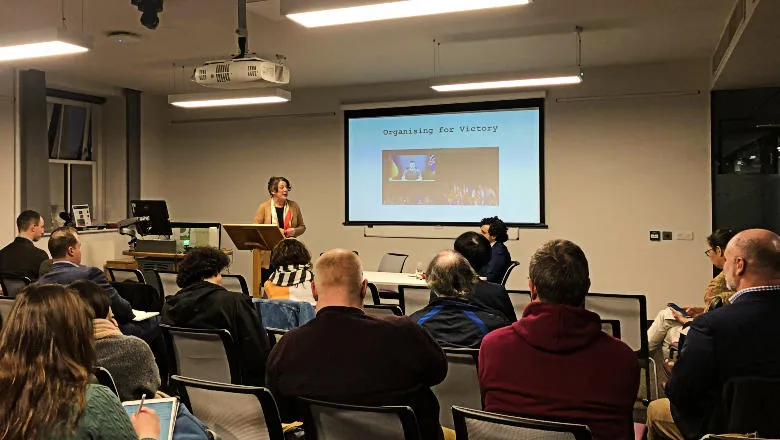"The key to Ukraine's victory lies in logistics, both at the industrial and operational levels, which NATO and its partners are providing. The decision to do so is significant, and all parties involved deserve credit. Through the logistics strategy, NATO has aided Ukraine in achieving its objectives in the war, bridging the gap between policy and tactics. To implement this strategy, they have meticulously planned the movement of weapons and resources, starting with the humble M-77 in the early days"
Dr Russell.
01 March 2023
"The key to Ukraine's victory lies in logistics", says Dr Jill S. Russell
National Security and Strategy analyst Dr Jill S. Russell gave a talk at King's to mark the anniversary of the invasion of Ukraine, including what it means for the future security environment.

On the anniversary of the Russian invasion of Ukraine, Dr Jill S. Russell visited the King's Department of War Studies to examine the emerging logistics history of the Ukraine War from various perspectives, including politics and strategy.
In conversation with the audience and Dr Pablo De Orellana, Lecturer in International Relations, Dr Russell discussed the role of logistics in the Ukraine War, stating that it was the driving force behind the conflict and not just a factor. She also mentioned her work on a new concept and doctrine of logistics and urban operations, to establish a leading strategic position for logistics in security policy.
Dr Russell also highlighted the strategy employed by Ukrainians in fighting the war, which involves targeting lines of communication, depots, and other areas where material or personnel are collected and attacking them regardless of the front lines. "This weakens the Russians' access to weapons and supplies. As a result, the Russian military's ability to continue the fight is wearing down, evidenced by their appeal to China for assistance", she added.
"Ukraine is supporting civilian life, the idea that life wins. This has been made a priority by Zelensky and the national and local governments […] It's not a side initiative, but a key part of the strategy, as it gives the population a sense of purpose and draws value from them. By promising to bring life back to retaken territories, the army's efforts are not squandered, and their sacrifices are honoured. Protecting key cities also ensures the soldiers' families are cared for, and this investment in civilian life is crucial to keeping constituencies on board"
Dr Russell.
In the talk Dr De Orellana reflected on the past six months of the war in Ukraine, highlighting the importance of nationalist ideology and the struggle for space and power. He also emphasised that the conflict is complex and multifaceted and requires a nuanced approach to comprehend it fully.
"Putin's ethnic survivalism drives his desire to conquer and expand. […] Despite the military aspect of the war appearing technical, even the most technical aspects of state practice and logistics have political implications. As we examine the logistics of the Ukraine war, we see how the failure to move materials beyond the Russian railheads hindered Putin's ability to behead the government of Ukraine in the first few months"
Dr De Orellana.
To join future events at the School of Security Studies, visit https://www.kcl.ac.uk/security-studies/events.


